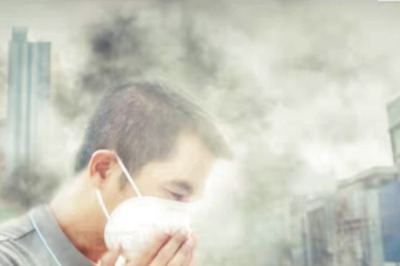
views
Washington: Low levels of radiation have turned up in milk samples from two US states, both on the West Coast. Officials say there is no public health threat.
Traces of radioactive Iodine-131 were found in milk in California and Washington state, according to federal and state authorities who are monitoring for contamination as the nuclear crisis unfolds in Japan.
The officials say the levels are still 5,000 times below worrisome levels.
The US Environmental Protection Agency and the Food and Drug Administration said Wednesday that radiation was found in a March 25 milk sample from Spokane, Washington. The California Department of Public Health said on its website that a similar result was found March 28 at a dairy in San Luis Obispo County.
Japan's Fukushima Dai-ichi nuclear power complex began leaking radiation after it was damaged by a devastating earthquake and tsunami this month.
The EPA always monitors radiation levels in the air at several sites throughout the country, but the agency said this week that it is increasing the level of nationwide monitoring of milk, precipitation and drinking water in response to the situation in Japan. Those substances are normally monitored for radiation only a few times a year.
EPA spokesman Brendan Gilfillan said the radiation detected in Spokane is different from what is normally found there.
"While there can be naturally occurring levels of radiation in milk as there are in the air, at levels far below levels of concern we don't generally see this particular isotope as part of those background levels," Gilfillan said.
The EPA has found very low levels of radiation in the air connected to the Japanese incident in Alaska, Alabama, California, Hawaii, Idaho, Nevada, Saipan, Guam, Northern Mariana Islands and Washington state. Gilfillan said the low level of radiation most likely ended up in the milk after a cow ate grass or drank rainwater that contained it.
The California Department of Public Health has a continuing program that checks milk for radiation levels and occasionally tests vegetables grown near power plants, said Gary Butner, chief of the department's Radiologic Health Branch.
Officials at the state's two nuclear power plants regularly sample milk at nearby dairies and split the samples they get with state public health authorities to be analysed at the agency's lab in Richmond, California, in the San Francisco Bay area, Butner said.













Comments
0 comment